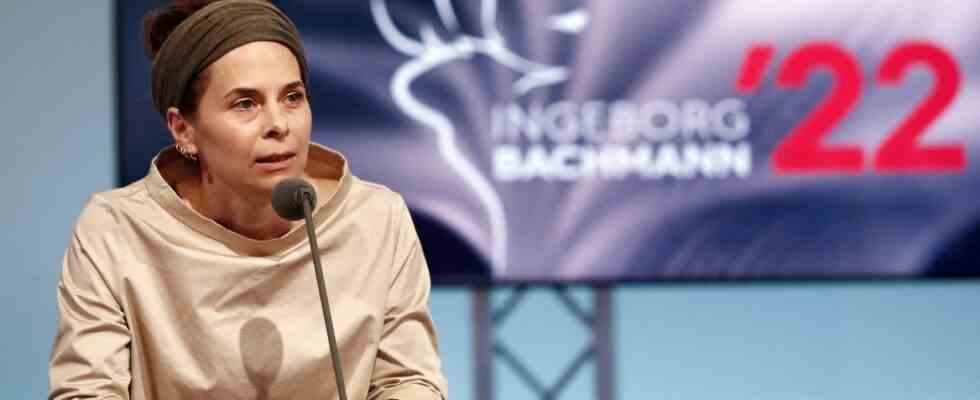It took two full pandemic years for the people of Klagenfurt to get their competition back. On Wednesday evening, at the opening of the 46th Days of German-language Literature, everything was marked by the return of the business, which until then had been directed to the screens to attend the most publicly effective award for contemporary literature. But now editors scurried around in the garden of the ORF studios again, literary agents, bloggers, readers. For this purpose, those who were actually at stake were placed in the middle of the returning event: like gladiators before the game, they sat there in a circle, lined up alphabetically, the 14 authors, who in the next three days would write their previously secret texts to the nine-strong group introduce the jury.
“Don’t play in your socks! There’s an elephant in this reading arena,” the Klagenfurt writer Anna Baar advised these authors at the end of her opening speech. However, it remains unclear whether the jurors are meant by this elephant and why this cozy gray animal should stand for the fact that experience has shown that there could be unpleasant panning again this year.
But before this warning came out, Anna Baar had actually given two speeches in one and wanted a lot of outstanding things under the title “The truth is an impertinence”. The Bachmann Prize falls in the fourth month of the Ukraine war and Baar belied the idea that these times would break with a European peace that has now reached eighty years. In 1991, for example, you could hear “the bomb impacts, the crackle of pistols, the screams of those hit, up close”. That was when the Slovenian War began almost to the day, while on this side of the border people were panicking about something entirely different, Baar says.
At the moment of the greatest attention, Klagenfurt first looks at itself
1991 was the year when the author Urs Allemann measured the inside view of a pedophile with his provocative text “Babyficker” and many found it difficult to bear. Really unbearable, however, as Baar brings this old text into the now less festive mood of Klagenfurt, “were the crimes of real child molesters”. Baar refers to the Carinthian pediatrician Franz Wurst, who for decades disguised the abuse of young children as “devotional therapy” and was protected by many. Baar speaks of other doctors, nurses, police officers and also the former governor Leopold Wagner, which is why the city of Klagenfurt is discussing renaming a sports arena named after him.
Disclosure rhetoric sounds in Anna Baar’s Klagenfurt speech and even if it sometimes sounds like it, she is not alone in the city. Until a month ago, the Israeli director Noam Brusilovsky made a documentary about the case with “Not Seeing” on the Klagenfurt Theater’s schedule.
It’s a sympathetic Austrian literary tradition to stick your finger in the musty heap of your own and keep pushing it until it all collapses. Josef Winkler, for example, who writes morbid anti-homeland novels, and a few years ago himself insulted the guests of honor from Klagenfurt, from the mayor to the governor and cultural advisor, with a speech across the board. Anna Baar also grumbles, she grumbles about the numerous streets in Klagenfurt that are named after Nazis, about the “cursed silence”, about accomplices. It would have been a sovereign performance if it had been allowed to end like this: at the moment of the greatest attention, the city of Klagenfurt first looks at itself with the help of the prosecutor Anna Baar.
But then Anna Baar continued to scold. In a second speech he scolded himself about the apparently miserable quality of contemporary literature, about the “youth jargon” and “snazzy plots”, about “new-liberal coolness” and “mildness of dismay”: “white bread literature without any special nutritional value”. She scolded herself like that without reference or example. And after that tirade, the final advice to watch out for the elephant in the room seems almost funny. Perhaps the authors sitting in a row here in Klagenfurt should have been warned before the first day of reading about Anna Baar’s conservative global characteristics of young contemporary literature.

